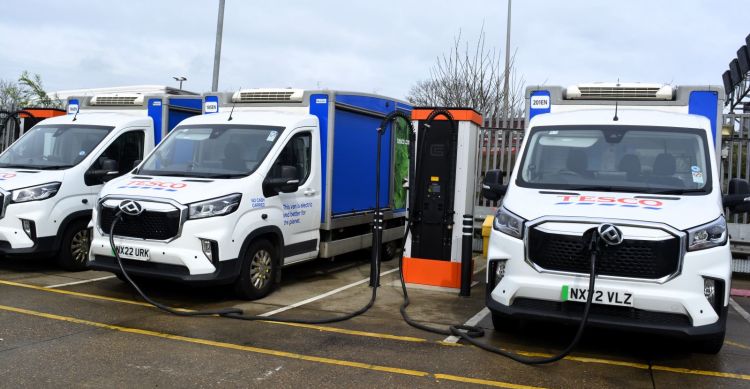27 October 2017 | Updated 01 January 1970
On Friday 12 May 2017 a computer virus, known as WannaCry, which encrypts data on infected computers and demands a ransom payment to allow users access, was released worldwide.
WannaCry was the largest cyber attack to affect the NHS in England, although individual trusts had been attacked before 12 May.
A National Audit Office investigation has focused on the ransomware attack’s impact on the NHS and its patients; why some parts of the NHS were affected; and how the Department and NHS national bodies responded to the attack.
The key findings of the investigation are:
The Department was warned about the risks of cyber attacks on the NHS a year before WannaCry and although it had work underway it did not formally respond with a written report until July 2017. The Department and Cabinet Office wrote to trusts in 2014, saying it was essential they had robust plans to migrate away from old software, such as Windows XP by April 2015.
In March and April 2017, NHS Digital had issued critical alerts warning organisations to patch their systems to prevent WannaCry. However, before 12 May 2017, the Department had no formal mechanism for assessing whether local NHS organisations had complied with their advice and guidance and whether they were prepared for a cyber attack.
NHS Digital say that all organisations infected by WannaCry shared the same vulnerability and could have taken relatively simple action to protect themselves. Infected organisations had unpatched, or unsupported Windows operating systems so were susceptible to the ransomware. However, whether organisations had patched their systems or not, taking action to manage their firewalls facing the internet would have guarded organisations against infection.
The attack led to disruption in at least 34% of trusts in England although the Department and NHS England do not know the full extent of the disruption. On 12 May, NHS England initially identified 45 NHS organisations including 37 trusts that had been infected by the WannaCry ransomware. In total at least 81 out of 236 trusts across England were affected. A further 603 primary care and other NHS organisations were infected by WannaCry, including 595 GP practices. However, the Department does not know how many NHS organisations could not access records or receive information, because they shared data or systems with an infected trust. NHS Digital believes no patient data were compromised or stolen.
Impact
NHS England identified 6,912 appointments had been cancelled, and estimated over 19,000 appointments would have been cancelled in total. Neither the Department nor NHS England know how many GP appointments were cancelled, or how many ambulances and patients were diverted from the five accident and emergency departments that were unable to treat some patients.
No NHS organisation paid the ransom, but the Department does not know how much the disruption to services cost the NHS.
Costs included cancelled appointments; additional IT support provided by NHS local bodies or IT consultants; or the cost of restoring data and systems affected by the attack. National and local NHS staff worked overtime including over the weekend of 13 to 14 May to resolve problems and to prevent a fresh wave of organisations being affected by WannaCry on Monday 15 May.
Kill switch
The cyber attack could have caused more disruption if it had not been stopped by a cyber researcher activating a ‘kill switch’ so that WannaCry stopped locking devices.
Between 15 May and mid-September NHS Digital and NHS England identified a further 92 organisations, including 21 trusts, as contacting the WannaCry domain, though some of these may have been contacting the domain as part of their cyber security activity.
Of the 37 trusts infected and locked out of devices, 32 were located in the North NHS Region and the Midlands & East NHS region. NHS England believe more organisations were infected in these regions because they were hit early on 12 May before the WannaCry ‘kill switch’ was activated.
Contingency planning - not tested
The Department had developed a plan, which included roles and responsibilities of national and local organisations for responding to an attack but had not tested the plan at a local level.
As the NHS had not rehearsed for a national cyber attack it was not immediately clear who should lead the response and there were problems with communications. Many local organisations could not communicate with national NHS bodies by email as they had been infected by WannaCry or had shut down their email systems as a precaution, though NHS Improvement did communicate with trusts’ Chief Executive Officers by telephone. Locally NHS staff shared information through personal mobile devices, including using the encrypted WhatsApp application.
Lessons
The NHS has accepted that there are lessons to learn from WannaCry and is taking action. NHS England and NHS Improvement have written to every major health body asking boards to ensure that they have implemented all alerts issued by NHS Digital between March and May 2017 and taken essential action taken to secure local firewalls.
“The WannaCry cyber attack had potentially serious implications for the NHS and its ability to provide care to patients. It was a relatively unsophisticated attack and could have been prevented by the NHS following basic IT security best practice. There are more sophisticated cyber threats out there than WannaCry so the Department and the NHS need to get their act together to ensure the NHS is better protected against future attacks,” said Amyas Morse, head of the National Audit Office.
Picture: An NAO investigation has focused on the WannaCry ransomware attack’s impact on the NHS and its patients and how the Department and NHS national bodies responded to the attack
Article written by Brian Shillibeer | Published 27 October 2017
Share
Related Articles
Mercury Rising, Straw Dogs, Hot Fuzz, Top Guns, The Crown & Vikings
We've got an FM Digest so good you'd almost want to make a movie out of it. Mercury have taken the Almac contract; Elior are eliminating plastic straws; Tenon are...
Read Full Article
Skanska Wins Contract for 20 Ropemaker Street
Skanska has won a £240 million contract to construct 20 Ropemaker Street in Central London for Great Elm Assets Limited, in association with Old Park Lane...
Read Full Article
X Marks The Spot Of The Tallest Tower In Town
The City of London Corporation has approved 1 Undershaft - AKA The Trellis - which will be the second tallest building in the Capital after The Shard and thus the second...
Read Full Article
Airline Company Guilty For Unsafe Operation of Passenger Lift
Flybe, the airline company, was sentenced on 4 February 2020 for the unsafe operation of a passenger lift. Meanwhile, a number of other firms have found themselves...
Read Full Article
A Top Ten Guide To Making Your Venue More Accessible
Eight venues have received awards from the disabled access charity Euan’s Guide for their work welcoming disabled visitors – and this prompted ThisWeekinFM to...
Read Full Article
Tackling The People Challenge Through Technology
Report - CBRE and ThisWeekinFM recently lead a delegation of experts to provide a briefing on technology in workplace and real estate strategy.
The breakfast briefing...
Read Full Article
Net Zero Rush-Through Criticised By Lords, Forum Claims
The Global Warming Policy Forum has claimed the House of Lords has rebuked the Government for rushing through a commitment to a Net Zero economy.
The Forum refutes the...
Read Full Article
Holland Match - It's All Gone Gooee Over There
ProptTech history has been made with global M&E firm Croonwolter&dros agreeing to connect the 5,000 commercial buildings it runs in the Netherlands to the...
Read Full Article
'IRA' Claim Parcel Bomb Responsibility In Correctly Coded Call
A claim has allegedly been made on behalf of the ‘IRA’ for the parcel bombs that were delivered to premises in the UK - using a recognised codeword.
A call...
Read Full Article
Emcor UK Takes Insurance On TFM Contract
Emcor UK, has been awarded a contract with multinational insurance company RSA Insurance Group which is being described as a total facilities management contract. It will...
Read Full Article

.gif)
.gif)
.png)

.gif)





.png)


.png)

.png)

.jpg)



.jpg)

